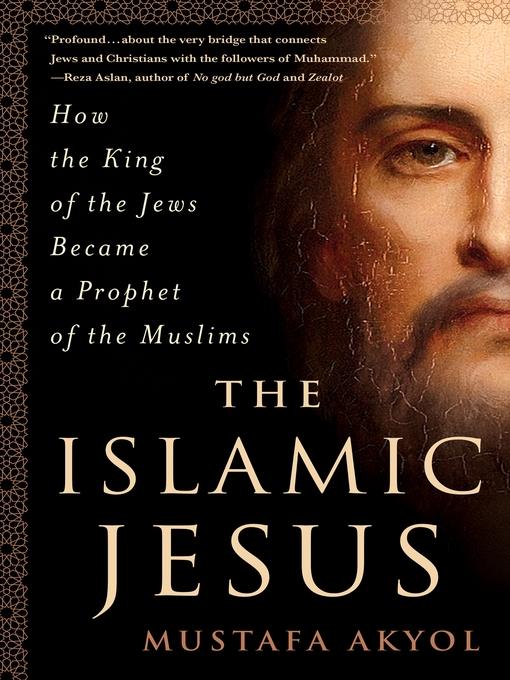
The Islamic Jesus
How the King of the Jews Became a Prophet of the Muslims
کتاب های مرتبط
- اطلاعات
- نقد و بررسی
- دیدگاه کاربران
نقد و بررسی

Starred review from December 12, 2016
In a conversational style and with studious acumen, Akyol (Islam Without Extremes) shows scintillating connections between “Jewish followers of Jesus and Arab followers of Muhammad” and how Jewish Christianity possibly shaped the Qur’an’s view of Isa—the Arabic name of Jesus. Tracing sacred texts from multiple traditions and centuries of commentary and contemplation concerning Jesus in Christian, Jewish-Christian, and Muslim sources, Akyol introduces the Islamic Jesus to the world. These beliefs and narratives about Jesus are handled respectfully, with careful attention to the nuances of his many sources. In his conclusion, Akyol admits that Christians, Jews, and Muslims have serious differences—theological and cultural. And yet, he advises, Muslims have something to learn from Jesus, and Christians and Jews can also gain from revisiting Jesus from a Muslim point of view. This is a solid read for those interested in the history of theology and religions, Christian-Muslim dialogue, understanding more about Islam, or appreciating the multivalent milieu of the Middle Eastern world where Christianity, Judaism, and Islam emerged.

December 15, 2016
Intriguing exploration of the Muslim understanding of Jesus. Akyol (Islam Without Extremes: A Muslim Case for Liberty, 2011) provides an open-minded and historically driven look at the Quran's treatment of Jesus, with an emphasis on how the person of Jesus may have come into the worldview of Muhammad and his followers. Displaying a keen comprehension for the background behind all three Abrahamic religions and a deep understanding of Middle Eastern history, Akyol reviews the place of Jesus in the scope of Islam in a way that few modern writers have, especially outside of purely academic works. After a short discussion on the concept of the "historical Jesus," he explores the divide between the theology developed by Paul, which became Christianity, broadly understood, and that developed by James and the church in Jerusalem, which became "Jewish Christianity," a sect that eventually died out. The author goes on to share the intriguing similarities between the theology of Jewish Christians and the Quran's theological concept of Jesus. In a pivotal chapter, the author provides a variety of recognized theories (and some archaeological evidence) for a real, historical connection between the vanishing Jewish Christians and the first followers of Islam. Nowhere does Akyol suggest that any one theory is definitive, but he certainly leaves readers with food for thought. He continues by exploring the role Jesus plays in the Quran, especially in contrast to his role in Christianity. In reviewing Quranic verses on Jesus, the author reveals that in many cases, parallel or at least related statements are made in apocryphal Christian literature. Among many other examples, the Quran claims that Jesus breathed life into clay birds, a statement highly reminiscent of a similar tale in a work of Christian Apocrypha, The Infancy Gospel of Thomas. Ultimately, Akyol finds that Jesus provides Muslims with a worthy exemplar of piety and holiness and that the overtones of history and geopolitics need not dampen that fact. A fascinating bridge text between Islam and Christianity.
COPYRIGHT(2016) Kirkus Reviews, ALL RIGHTS RESERVED.

Starred review from January 1, 2017
After receiving a copy of the New Testament from a missionary in his home city of Istanbul, Akyol (Islam Without Extremes) brought it home to read. The author was taken by a passage in the Epistle of James that closely resembled a passage in the Qur'an. Intrigued, he researched the epistle further and learned that James, the brother of Jesus, espoused a form of Christianity much different than that promoted by St. Paul. James was the leader of the Jerusalem Church which practiced an early form of Christianity rooted in Judaism. Akyol discovered that early Jewish Christianity paralleled Islam to a large extent. Both considered Jesus as Israel's messiah but neither considered him divine. Neither accepted the concept of original sin or the Trinity, both of which are precepts of the Christian Church. Akyol explores the possible connections between early Jewish Christianity and Islam, including archaeological and historic links, while also delving into the Jesus described in the Qur'an. In doing so, the author touches on the Nativity, the Virgin Mary, and the Second Coming. VERDICT Akyol has produced an exceptionally compelling work that promotes religious tolerance and understanding. Recommended for religious scholars and anyone with an interest in religion.--Dave Pugl, Ela Area P.L., Lake Zurich, IL
Copyright 2017 Library Journal, LLC Used with permission.

























دیدگاه کاربران